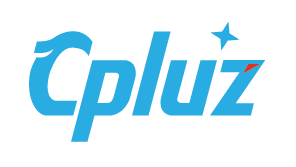When it comes to building a website or launching an online project, one of the most important decisions you’ll make is choosing the right hosting plan. The right hosting solution can significantly impact your site’s performance, security, and overall success. In this comprehensive guide, we will explore the key factors to consider when selecting a hosting plan that best fits your needs.
1. Determine Your Website Type and Traffic Volume
The first step in choosing the optimal hosting plan is understanding the nature of your website and expected traffic volume. Is it a personal blog, an e-commerce platform, or a business site with heavy traffic? Each type of website requires different resources and features. For instance, a small blog may be suitable for a basic shared hosting plan, while an e-commerce site with high traffic would benefit from a dedicated server or a cloud hosting solution.
2. Evaluate Your Technical Skills and Resources
Assess your level of technical expertise and the resources you have available to manage your website. Shared hosting plans are generally more user-friendly and require less technical knowledge, making them an ideal choice for beginners. On the other hand, VPS (Virtual Private Server) or dedicated server solutions offer more control and customization but demand a higher level of technical proficiency.
3. Consider Performance and Scalability
Website performance plays a crucial role in user experience and search engine optimization (SEO). Look for a hosting plan that offers fast page load times, minimal downtime, and reliable uptime. Additionally, consider the scalability of the hosting solution to accommodate future growth in traffic volume. Cloud hosting plans are often preferred for their flexibility and ability to easily scale resources as needed.
4. Security and Backup Solutions
Security is a top priority when it comes to your online presence. A robust security system can protect your website from cyberattacks and data breaches. Look for hosting providers that offer firewalls, SSL certificates, and regular software updates. Additionally, consider the availability of backup solutions to ensure your data remains protected in case of any unexpected events.
5. Customer Support and Reliability
A reliable hosting provider with prompt customer support can help you quickly address any issues or concerns that arise. Look for providers with multiple contact options (phone, email, live chat), 24/7 availability, and a solid reputation for providing timely assistance. Check user reviews to gauge the quality of their customer service.
6. Cost and Contract Terms
Finally, consider the cost and contract terms of each hosting plan option. While it’s tempting to choose the cheapest option, keep in mind that you often get what you pay for. Consider the long-term costs and potential savings from a more robust, scalable solution. Additionally, be aware of any hidden fees or cancellation policies before making your decision.
In conclusion, choosing the best hosting plan requires careful consideration of various factors such as website type, technical skills, performance, security, customer support, and cost. By taking the time to evaluate these elements, you’ll be well on your way to finding a hosting solution that meets your current needs while also accommodating future growth.

